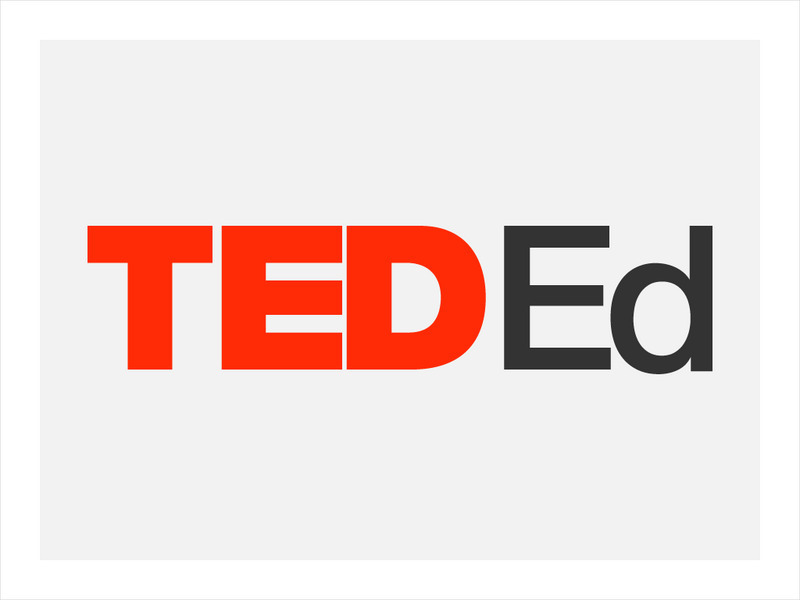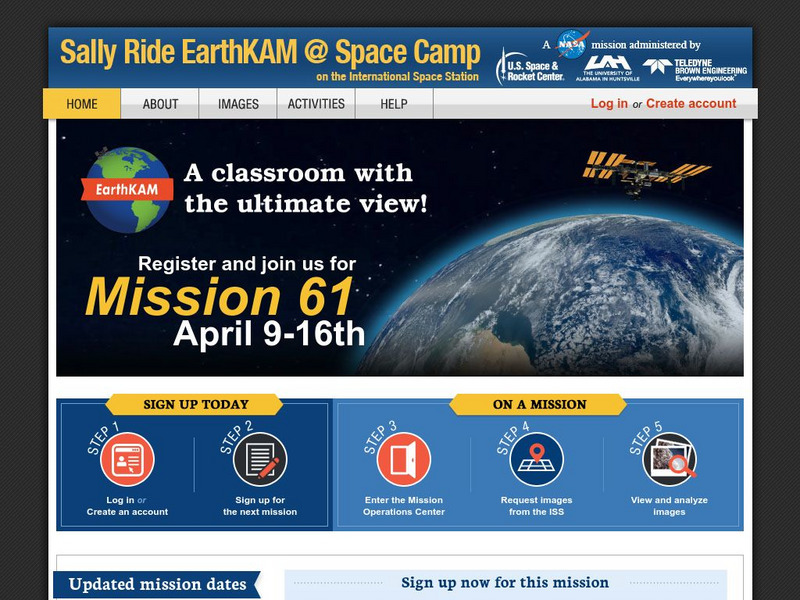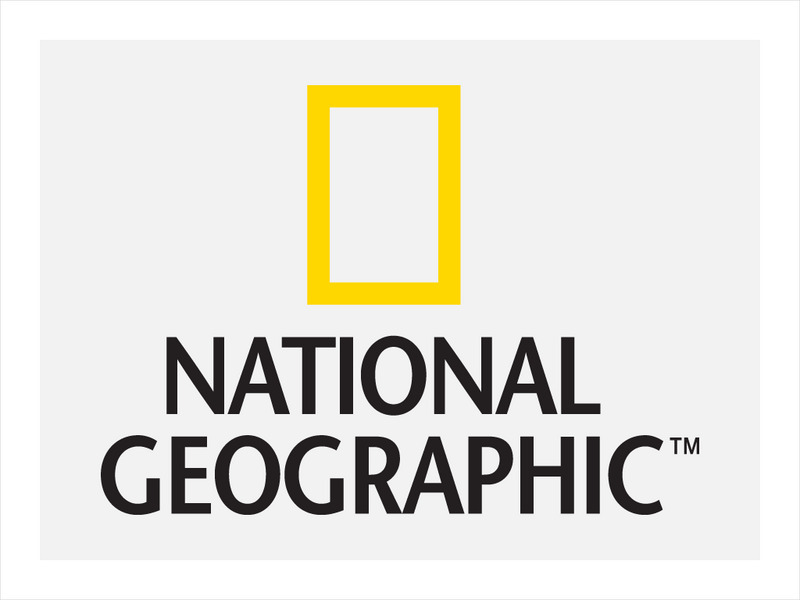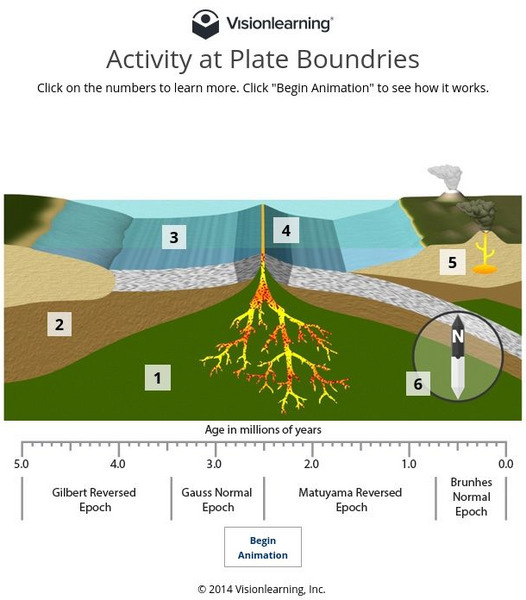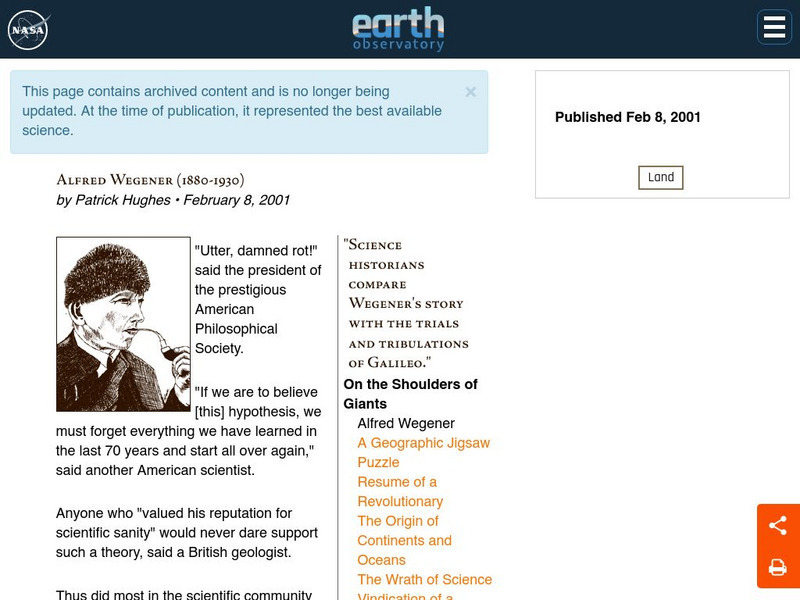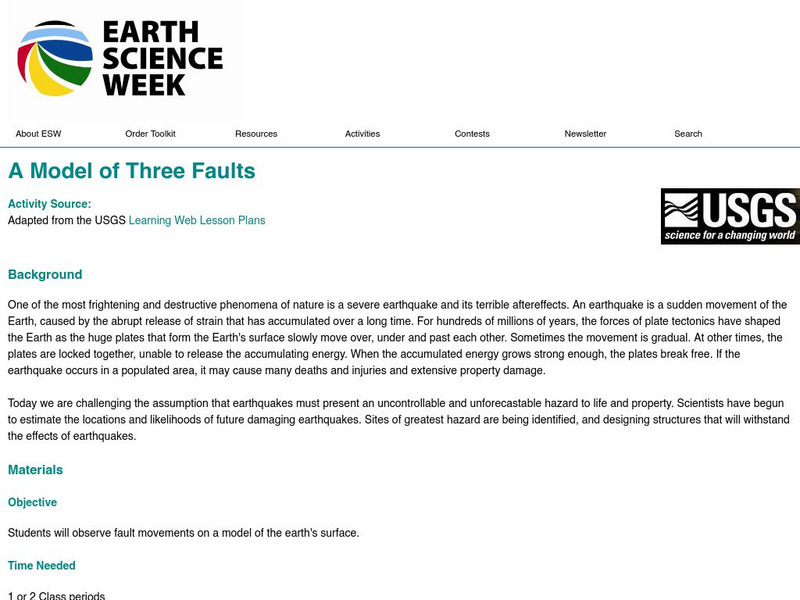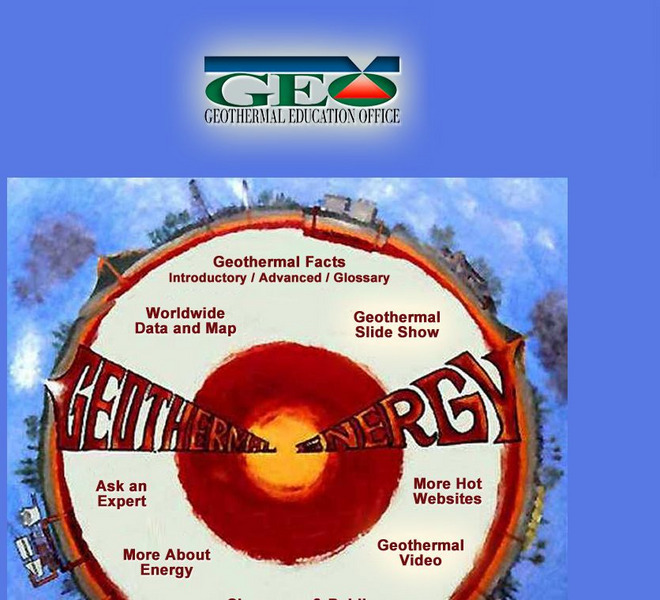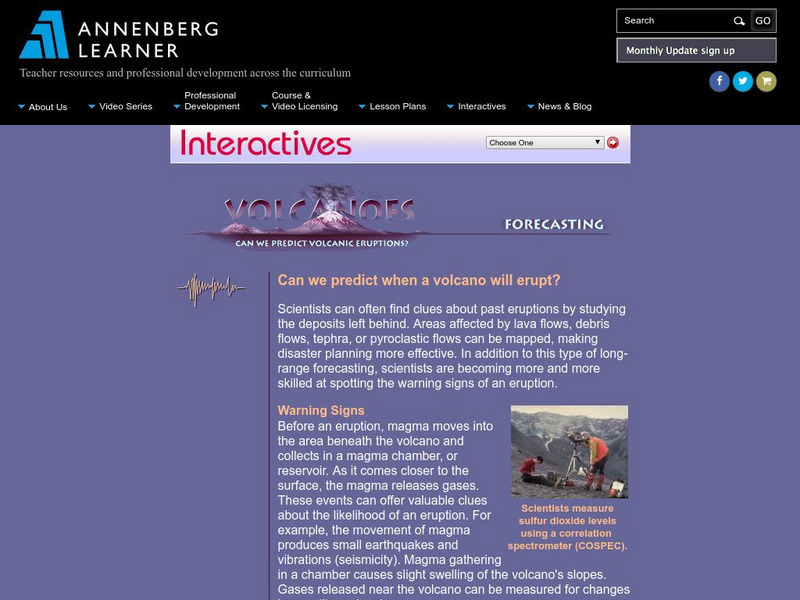TED Talks
Ted: Ted Ed: How North America Got Its Shape
Peter J. Haproff explains how it took millions of years and some incredible plate tectonics to forge the continent we know today. [4:57]
Khan Academy
Khan Academy: Gallery: How Do Earth and Life Interact?
Explore the biosphere, zoom in on some unique ecosystems, and learn how activity in the Solar System and plate tectonics can affect the climate and life on the planet.
Other
Earth History: The Paleomap Project
The Paleomap Project illustrates the plate tectonic development of the ocean basins and continents, as well as the changing distribution of land and sea during the past 1,100 million years.
PBS
Pbs Learning Media: Tectonic Plates and Plate Boundaries
This interactive activity adapted from NASA features world maps that identify different sections of the Earth's crust called tectonic plates. The locations of different types of plate boundaries are also identified, including convergent,...
National Earth Science Teachers Association
Windows to the Universe: Snack Tectonics
Learners create a model using food that simulates the layering and movement of tectonic plates. Overheads are provided that demonstrate different ways to position the graham crackers, frosting, and fruit roll-ups to emulate how the...
TeachEngineering
Teach Engineering: How Mountains Are Formed
Students investigate how mountains are formed. Concepts include the composition and structure of the Earth's tectonic plates and tectonic plate boundaries, with an emphasis on plate convergence as it relates to mountain formation....
Exploratorium
Exploratorium: On the Road With the Faultline Project
This outstanding multimedia website follows the San Andreas fault system up the California coast from San Diego to just north of San Francisco on the coast.
Science Education Resource Center at Carleton College
Serc: Analyzing Plate Motion Using Earth Scope Gps Data
In this chapter, you will access Global Positioning System (GPS) data from the Plate Boundary Observatory (PBO) and analyze the data in a spreadsheet to measure the motion of GPS stations in the Pacific Northwest. From your analyses, you...
Incorporated Research Institutions for Seismology
Iris: Gps Measuring Plate Motion [Pdf]
This resource looks at how geologists are able to measure the movement of tectonic plates using satellite-based data and how they were able to surmise in the past that the plates were moving. It also discusses how to read GPS time-series...
Exploratorium
Exploratorium: Earthquake Faultline Earthquake Activities
This outstanding website provides an excellent variety of hands-on earthquake activities to help you understand what causes earthquakes.
US Geological Survey
Usgs: Understanding Plate Motions
The U.S. Geological Survey provides descriptions and illustrations for the plate boundaries of the Earth's surface.
Northwestern University
Northwestern University: Measuring Plate Motions [Pdf]
This slideshow gives an advanced-level explanation of how to calculate the distance that tectonic plates move by using Physics formulas and concepts. Includes a discussion of marine magnetic anomalies and how these impact plate movement....
American Museum of Natural History
American Museum of Natural History: Plates on the Move
Explore how plates move with this interactive site. Students choose locations on the map of Earth to see if the tectonics plate are slipping, spreading, colliding, or subducting.
Exploratorium
Exploratorium: Loma Prieta, Bay Area, Earthquake 1989
This outstanding multimedia site documents the earthquake and related events that took place on October 17, 1989 in the San Francisco Bay Area.
Other
Nasa: Iss Earth Kam
Students get a whole new perspective of the world through images obtained from the International Space Station. Students can even request images to be taken through ISS EarthKAM. Activities and educator guides are provided.
Sophia Learning
Sophia: Earth Sciences: Move Mountains
Created to teach students of the 21st century, SOPHIA is bringing the science experiements straight to your fingertips. Learn about tectonic plates will Bill Nye as you take part in this interactive lesson and help make learning permanent!
National Geographic
National Geographic: Encyclopedia: Mantle
An in-depth look at the structure and composition of Earth's mantle, with lots of visuals. Covers lithosphere, Mohorovicic discontinuity, asthenosphere, transition zone, lower mantle, the d double-prime region, mantle convection, mantle...
Vision Learning
Visionlearning: Activity at Plate Boundaries
A simulation that demonstrates divergent plate boundaries and seafloor spreading. A focus is on evidence of the Earth's normal and reversed polarity over geologic time in the rock record.
NASA
Nasa: Alfred Wegener
An excellent biography of Wegener that includes his breakthrough work and the storm of controversy it created. Finally, Alfred Wegener has gotten the praise and recognition he deserved.
American Geosciences Institute
American Geosciences Institute: Earth Science Week: A Model of Three Faults
In this lesson, students learn about the different kinds of faults and plate boundaries and where they can be found. They research and report on the faults that are present in their state. They are also asked to develop models of three...
Other
Geothermal Education Office
This resource for geothermal energy education features a slide show with instructive graphics.
University of California
University of California: Understanding Earthquakes
This website is a resource for learning about earthquakes. Java animation at this site helps you visually understand the causes of earthquakes.
Annenberg Foundation
Annenberg Learner: Essential Science for Teachers: Earth and Space 3
Visit an active volcano site to find out the connection between the movement of the Earth's plates and the processes deep within the Earth's interior. [58:23]
Annenberg Foundation
Annenberg Learner: Volcanoes: Forecasting Eruptions
A look at some of the methods and problems with forecasting volcanic eruptions.
Other popular searches
- Plate Tectonics Activities
- Plate Tectonics Pangaea
- Plate Tectonic Demonstration
- Science Plate Tectonics
- Lessons on Plate Tectonics
- Theory of Plate Tectonics
- Plate Tectonics Lab Activity
- Modeling Plate Tectonics
- Evidence for Plate Tectonics
- Plate Tectonics Theory
- Plate Tectonics Word Search
- Tectonic Plate Boundaries
